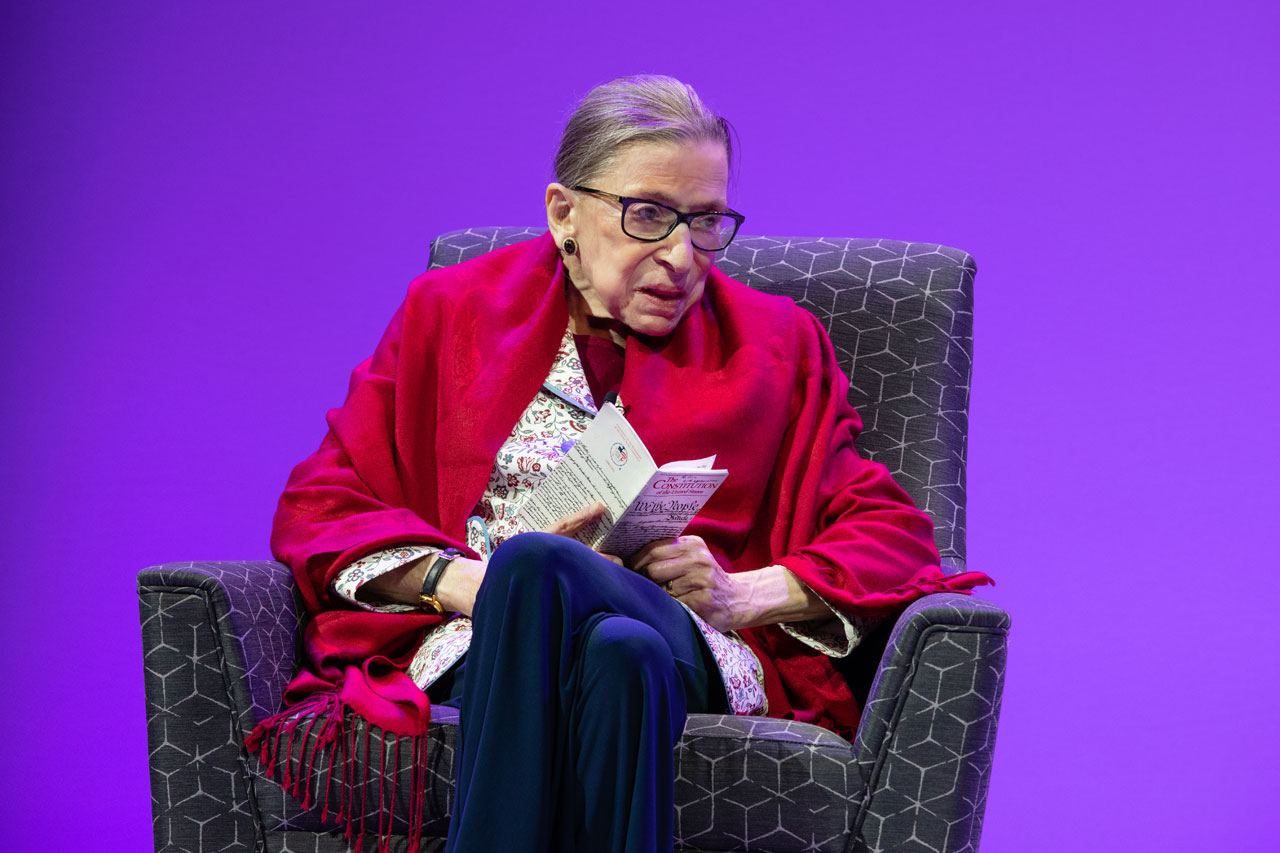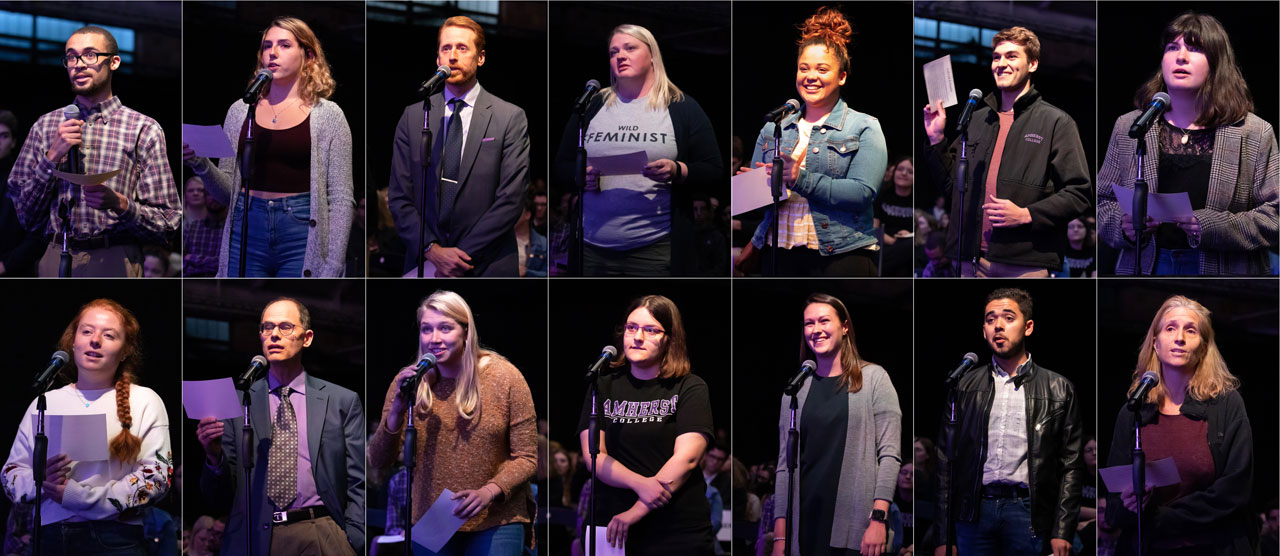
“An aberration.”
That was U.S. Supreme Court Justice Ruth Bader Ginsburg’s succinct response to the question that Director of Dining Services Joseph Flueckiger posed to her on Oct. 3: “How do you think people will characterize this period in American history?”
The Justice’s powerful assessment came during a conversation with Amherst President Biddy Martin that drew around 1,600 students, faculty and staff, as well as media. Justice Ginsburg is the third sitting justice to speak at Amherst since 2004; the others are the late Justice Antonin Scalia, the parent of a member of the class of 2002, and Justice Sonia Sotomayor.
The anecdote-sprinkled discussion was held in an almost unrecognizable Coolidge Cage, on the lower level of Alumni Gymnasium, which had been carpeted and decorated with elegant purple and white touches for the historic visit from a sitting justice on the U.S. Supreme Court. The choice of venue alone illustrated the event’s institutional significance: Justice Ginsburg is the first high-profile figure to speak in the Cage since President John F. Kennedy, who delivered an oft-quoted speech—his last-ever public address—in the same space on Oct. 26, 1963.

Throughout Justice Ginsburg and Martin’s wide-ranging conversation, the audience was rapt; beyond the occasional cough or sneeze from an attendee and the rain pattering on the roof, not much was heard other the justice’s soft, strong voice.
One prevalent theme was the value of listening: to legal arguments, to music, to one another.
That theme was evident from beginning, when the College’s Choral Society surprised the justice with an a cappella performance from her favorite opera, The Marriage of Figaro.
Justice Ginsburg and Martin discussed the justice’s experiences over her six-decade career. Among many other topics, the conversation touched on her education at Cornell (“Nabokov was a marvelous teacher,” she said), the high court as a reactive institution (“The Supreme Court doesn’t have an agenda of its own”) and Title VII, the federal law that “prohibits employment discrimination based on race, color, religion, sex and national origin.”

Of the latter, the justice recalled that early in her career, “employers felt very comfortable putting up sign-up sheets that said ‘men only.’” While that practice has since gone away, “there is still rampant discrimination,” especially, she said, as a result of unconscious bias.
The pair also spoke about some landmark Supreme Court decisions of her lifetime, including Roe v. Wade (1973, before Justice Ginsburg’s tenure began), which protects a woman’s right to have an abortion; Citizens United v. the Federal Election Commission, which concerns campaign finance; and United States v. Virginia, which struck down the male-only admission policy of the Virginia Military Institution (VMI).
In the VMI case, Justice Ginsburg wrote the majority decision, with Justice Scalia writing the sole dissent. As an example of the collegiality and friendship she shared with the late justice despite profound political differences, the Ginsburg told the story of Justice Scalia giving her his dissent early so she’d have proper time to respond to it. “It absolutely ruined my weekend when I read it, but I was glad to have an extra few days to come up with responses.”
She noted that Justice Scalia predicted that the majority decision would spell the demise of VMI: “He turned out to be quite wrong in that prophecy.”

One of the justice's most thought-provoking answers came as the event was ending and Martin asked whether there will ever be an Equal Rights Amendment to the U.S. Constitution.
“I hope so,” she said, noting that every constitution worldwide written in the past 50 years contains language about equal rights for women. Even if it’s just a symbol, she said, “it’s a very important symbol.”
She added: “I think it’s time for us to catch up.”